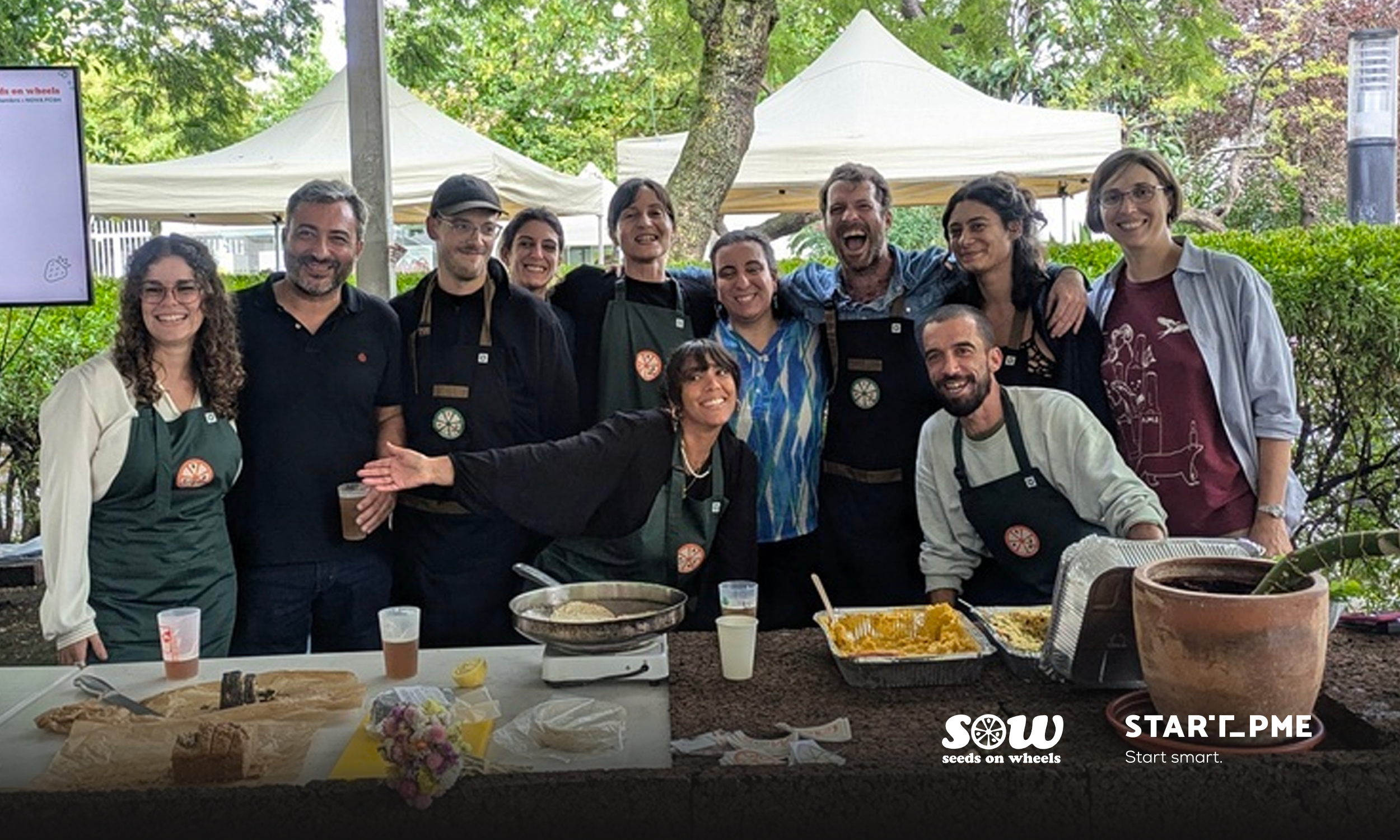
The Netherlands Redefines the Workweek and Confirms Start PME’s Visionary Path
The Netherlands has recently established itself as one of the most striking examples of labor transformation in Europe. Official data and analyses published by leading international organizations confirm that the average weekly working hours in the country have dropped to around 32.1 hours for individuals aged between 20 and 64, moving away from the traditional forty-hour standard. This shift did not come from a sudden law abolishing the forty-hour workweek; instead, it was a gradual, structural process supported by flexible labor policies, the growing weight of part-time work, and a corporate culture that values both productivity and well-being.

The Netherlands Redefines the Workweek and Confirms Start PME’s Visionary Path
The Netherlands has recently established itself as one of the most striking examples of labor transformation in Europe. Official data and analyses published by leading international organizations confirm that the average weekly working hours in the country have dropped to around 32.1 hours for individuals aged between 20 and 64, moving away from the traditional forty-hour standard. This shift did not come from a sudden law abolishing the forty-hour workweek; instead, it was a gradual, structural process supported by flexible labor policies, the growing weight of part-time work, and a corporate culture that values both productivity and well-being.
This phenomenon is the result of remarkable economic and organizational maturity. The Dutch economy remains robust, with one of the highest employment rates in the European Union and hourly productivity that remains competitive compared to the world’s largest economies. The country has demonstrated that it is possible to reduce formal working hours without compromising financial results or jeopardizing global competitiveness. On the contrary, burnout levels have decreased, absenteeism has fallen, and employee satisfaction has significantly improved. Work-life balance has become a key differentiator in attracting and retaining talent in a highly qualified market.
Several leading Dutch companies reinforced this trend by adopting four-day workweeks while maintaining salaries and benefits. Among the most cited cases is Afas, which permanently closed on Fridays, proving that proper strategic planning and well-defined processes can sustain shorter work regimes without any loss in productivity. The country has thus built an ecosystem where results matter more than clocked hours, and where the quality of time worked outweighs its quantity.
For the Portuguese business landscape, this example is not merely an international curiosity but a clear sign of a paradigm shift. In a world where talent is scarce and innovation demands are increasing, the ability to offer more balanced working conditions becomes a competitive asset. It is precisely at this point that Start PME stands out as a pioneer in Portugal. By boldly adopting the Four-Day Week (S4D) for its fifty employees, without salary cuts or exceptions, Start PME anticipated global trends and positioned itself as a national market reference. This decision was not taken as a mere marketing experiment but as a strategic choice rooted in modern management principles, social responsibility, and long-term vision.
Start PME has shown that the formal reduction of working hours does not necessarily imply a drop in performance. The reorganization of internal processes, the adoption of results-oriented work methodologies, and investment in technology have increased efficiency during working days and improved the organizational environment. The outcome is a virtuous cycle: more motivated and focused employees generate higher productivity, the company reduces indirect costs associated with absenteeism or turnover, and clients benefit from a more attentive and qualified service.
The Dutch example confirms that this path is solid. Countries and companies that dare to challenge old paradigms ultimately discover new ways of creating value. The Netherlands, with its diversified and demanding economy, would not be able to sustain this change if it represented a real threat to competitiveness. On the contrary, its experience shows that advanced markets already recognize work-life balance as a driver of productivity and innovation. For Portugal, where many sectors still operate under rigid and inflexible models, Start PME proves that it is possible to lead change and reap the benefits ahead of the competition.
The adoption of the S4D is not just an internal policy; it is a strategic message to clients, partners, and investors. It demonstrates that the company understands global trends and is prepared to meet future challenges. By aligning itself with practices now defining one of Europe’s most competitive countries, Start PME strengthens its credibility as an innovative consultancy and as a responsible employer. For the business community, the message is clear: the future of work does not belong to those who insist on extending working hours but to those who understand that productivity, well-being, and innovation go hand in hand.
As the debate on the four-day week gains momentum in Portugal and across Europe, Start PME emerges as a beacon of leadership and living proof that change is not only possible but advantageous. Just as the Netherlands has demonstrated, the key is not in counting hours but in the quality of management and adaptability. The company thus reaffirms that it is on the right path — one that combines business competitiveness with a genuine commitment to the people who build its success every day.
Frederico Almeida
24.09.2025
All rights reserved. This article is protected by copyright and may not be reproduced, distributed, transmitted or used, in whole or in part, without the prior written permission of Equações Exaustivas Lda. All trademarks, company names, logos and products mentioned are the property of their respective owners.
This phenomenon is the result of remarkable economic and organizational maturity. The Dutch economy remains robust, with one of the highest employment rates in the European Union and hourly productivity that remains competitive compared to the world’s largest economies. The country has demonstrated that it is possible to reduce formal working hours without compromising financial results or jeopardizing global competitiveness. On the contrary, burnout levels have decreased, absenteeism has fallen, and employee satisfaction has significantly improved. Work-life balance has become a key differentiator in attracting and retaining talent in a highly qualified market.
Several leading Dutch companies reinforced this trend by adopting four-day workweeks while maintaining salaries and benefits. Among the most cited cases is Afas, which permanently closed on Fridays, proving that proper strategic planning and well-defined processes can sustain shorter work regimes without any loss in productivity. The country has thus built an ecosystem where results matter more than clocked hours, and where the quality of time worked outweighs its quantity.
For the Portuguese business landscape, this example is not merely an international curiosity but a clear sign of a paradigm shift. In a world where talent is scarce and innovation demands are increasing, the ability to offer more balanced working conditions becomes a competitive asset. It is precisely at this point that Start PME stands out as a pioneer in Portugal. By boldly adopting the Four-Day Week (S4D) for its fifty employees, without salary cuts or exceptions, Start PME anticipated global trends and positioned itself as a national market reference. This decision was not taken as a mere marketing experiment but as a strategic choice rooted in modern management principles, social responsibility, and long-term vision.
Start PME has shown that the formal reduction of working hours does not necessarily imply a drop in performance. The reorganization of internal processes, the adoption of results-oriented work methodologies, and investment in technology have increased efficiency during working days and improved the organizational environment. The outcome is a virtuous cycle: more motivated and focused employees generate higher productivity, the company reduces indirect costs associated with absenteeism or turnover, and clients benefit from a more attentive and qualified service.
The Dutch example confirms that this path is solid. Countries and companies that dare to challenge old paradigms ultimately discover new ways of creating value. The Netherlands, with its diversified and demanding economy, would not be able to sustain this change if it represented a real threat to competitiveness. On the contrary, its experience shows that advanced markets already recognize work-life balance as a driver of productivity and innovation. For Portugal, where many sectors still operate under rigid and inflexible models, Start PME proves that it is possible to lead change and reap the benefits ahead of the competition.
The adoption of the S4D is not just an internal policy; it is a strategic message to clients, partners, and investors. It demonstrates that the company understands global trends and is prepared to meet future challenges. By aligning itself with practices now defining one of Europe’s most competitive countries, Start PME strengthens its credibility as an innovative consultancy and as a responsible employer. For the business community, the message is clear: the future of work does not belong to those who insist on extending working hours but to those who understand that productivity, well-being, and innovation go hand in hand.
As the debate on the four-day week gains momentum in Portugal and across Europe, Start PME emerges as a beacon of leadership and living proof that change is not only possible but advantageous. Just as the Netherlands has demonstrated, the key is not in counting hours but in the quality of management and adaptability. The company thus reaffirms that it is on the right path — one that combines business competitiveness with a genuine commitment to the people who build its success every day.
Frederico Almeida
24.09.2025
All rights reserved. This article is protected by copyright and may not be reproduced, distributed, transmitted or used, in whole or in part, without the prior written permission of Equações Exaustivas Lda. All trademarks, company names, logos and products mentioned are the property of their respective owners.



